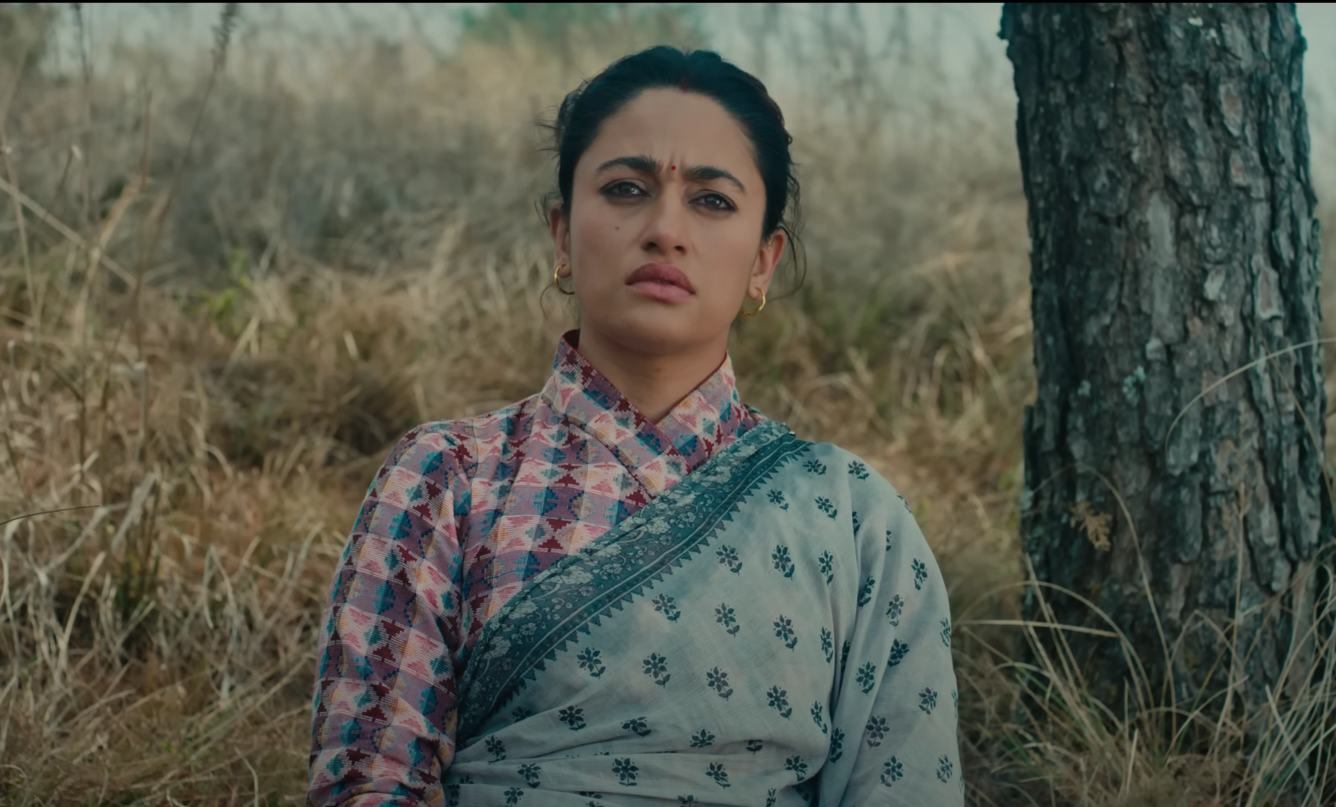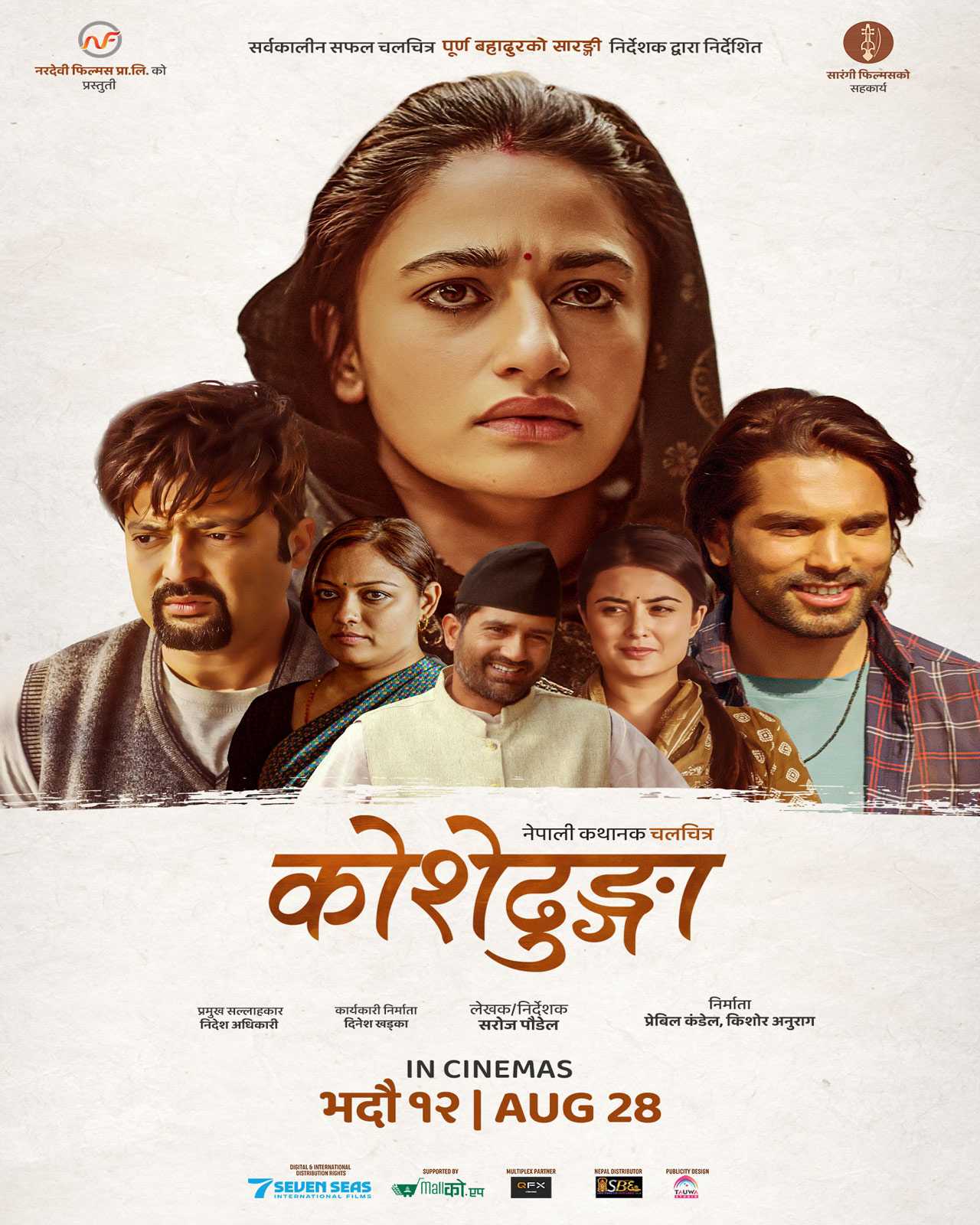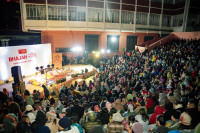Culture & Lifestyle
Between staying and leaving—‘Koshedhunga’ tells Nepal’s story
Saroj Poudel’s social drama delves into the dilemmas of rural Nepal, examining migration, family obligations, and the struggles of love and survival.
Aarya Chand
‘Koshedhunga’, directed by Saroj Poudel, situates itself within the tradition of Nepali social and family drama. Poudel, known for earlier films such as ‘Mental’, ‘Welcome to Hemjakot’, and ‘Purna Bahadur Ko Sarangi’, consistently examines ordinary Nepali households caught between cultural expectations and economic pressures, focusing on rural livelihoods, migration, and family responsibilities. ‘Koshedhunga’ continues this thematic concern, exploring how individuals navigate the tensions between tradition, family obligations, and economic necessity.
The story unfolds in a hilltop village, where Sanjog (Manjil Kumar) struggles with unemployment and his family’s expectations. Determined to secure a government job through the loksewa (public service) system, he repeatedly attempts the exam but fails. Pressured by circumstance and family obligations, he reluctantly chooses to migrate abroad for work. His departure changes the film’s tone, introducing a more sombre narrative.
Meanwhile, Sanjog’s childhood friend and later wife, Sital (Surakshya Panta), remains in the village. Her efforts to sustain her marriage and protect her dignity are persistently challenged by Dhanbir (Prabin Khatiwada), a local politician. He initially seeks her hand before her marriage to Sanjog, and later, when she faces hardship and turns to him for assistance, he once again raises the prospect of marriage as a condition for his support. Rishiram (Aryan Sigdel), his relative, represents an alternative path by choosing to remain in the community and pursue animal husbandry despite his education. His story also intersects with a subplot involving an insurance company employee, portrayed by Niti Shah, who develops feelings for him. However, her affection is disregarded by her mother, who objects to Rishiram as a prospective son-in-law because he is a shepherd. Through these intertwined lives, the film examines love, compromise, and socio-economic pressures, while also interrogating gender roles and expectations in rural Nepal.
At its core, ‘Koshedhunga’ explores the dilemma many Nepali families face: whether to remain in the country with limited prospects or seek opportunities abroad at significant personal cost. Sanjog’s repeated failures at government employment leave him little choice but migration, mirroring the experiences of countless Nepalis trapped in precarious cycles of labour.

The film also interrogates gender roles and expectations. Sital’s position within her family is questioned early in the film when her father asks who will marry her, echoing widespread attitudes towards outspoken daughters. Her subsequent decisions, sacrifices, and resilience highlight the burdens often placed upon women in such contexts. Dhanbir’s pursuit of her, despite her existing marriage, is positioned as an abuse of power, further emphasising the limited agency afforded to women within patriarchal structures.
The viewing experience of ‘Kosedhunga’ is marked by a mixture of humour, melodrama, and moments of stark realism. The first half offers comic interludes—some successful, others less so—before shifting into a more serious exploration of migration, loss, and resilience.
Visually, the film situates itself within recognisable village settings, with attention given to domestic interiors, agricultural landscapes, and local institutions. Costume design, particularly in female attire such as sarees and traditional gunyo cholo, contributes to cultural specificity.
Music plays a prominent role, beginning with the popular song ‘Natra Bhane Jindagi Bertha Xa Hoi Batuli’, whose significance unfolds in later scenes, reflecting the film’s concern with companionship, security, and the perceived worth of love and marriage. Several short musical segments later in the film add texture to otherwise dialogue-free moments. However, abrupt cuts in background scoring occasionally disrupt the flow, reducing the emotional effect of some sequences. Cinematography occasionally ventures beyond convention, as seen in the brief slanted shot and notable moments like Sanjog carrying his father on his back.
Performances vary but are largely competent. Surakshya Panta conveys Sital’s conflicting emotions with clarity, particularly in later scenes of grief and acceptance. Aryan Sigdel provides effective comic relief as Rishiram, while Dhanbir illustrates the entanglement of wealth, politics, and personal desire. Supporting roles from Reecha Sharma, Niti Shah, and Saroj Khanal are handled without overshadowing the leads, though Niti Shah’s portrayal occasionally lacks emotional assurance. The ensemble dynamic is carefully balanced.

Scriptwriting demonstrates attentiveness to dialogue, with lines such as “At home, there’s no work; abroad, no safety—caught between a land that can’t provide and a world that won’t protect” succinctly articulating the central dilemma. Another line—“A life without anyone falling for you can be truly blissful”—gestures towards the constraints of marriage and the weight of social expectation.
Poudel’s film neither romanticises nor trivialises the struggles it depicts. Instead, it presents a measured account of individuals navigating difficult choices, and it is in this honesty that the film finds its most compelling strength.
The film closes with a carefully constructed cinematic gesture. As the haunting lyrical lines—“Oh, my beloved, this distance cannot be crossed, perhaps our paths may never meet again. Still, I shall wait for you forever”—are sung, Sanjog is seen playing the flute beneath a tree. The camera lingers as the nest falls from its branch, its emptiness symbolising loss and dislocation. This image encapsulates the central absence of the story: the collapse of home, love, and security under the weight of social and economic pressures. Without spoken explanation, the gesture communicates fragility and finality, leaving the audience with a visual metaphor that extends beyond the film, evoking the unsettled journeys of countless lives shaped by migration.
————-
Koshedhunga
Director: Saroj Poudel
Cast: Surakshya Panta, Aryan Sigdel, Reecha Sharma, Niti Shah, Manjil Kumar
Duration: 120 minutes
Language: Nepali
Available: In nearby cinemas




 15.12°C Kathmandu
15.12°C Kathmandu















